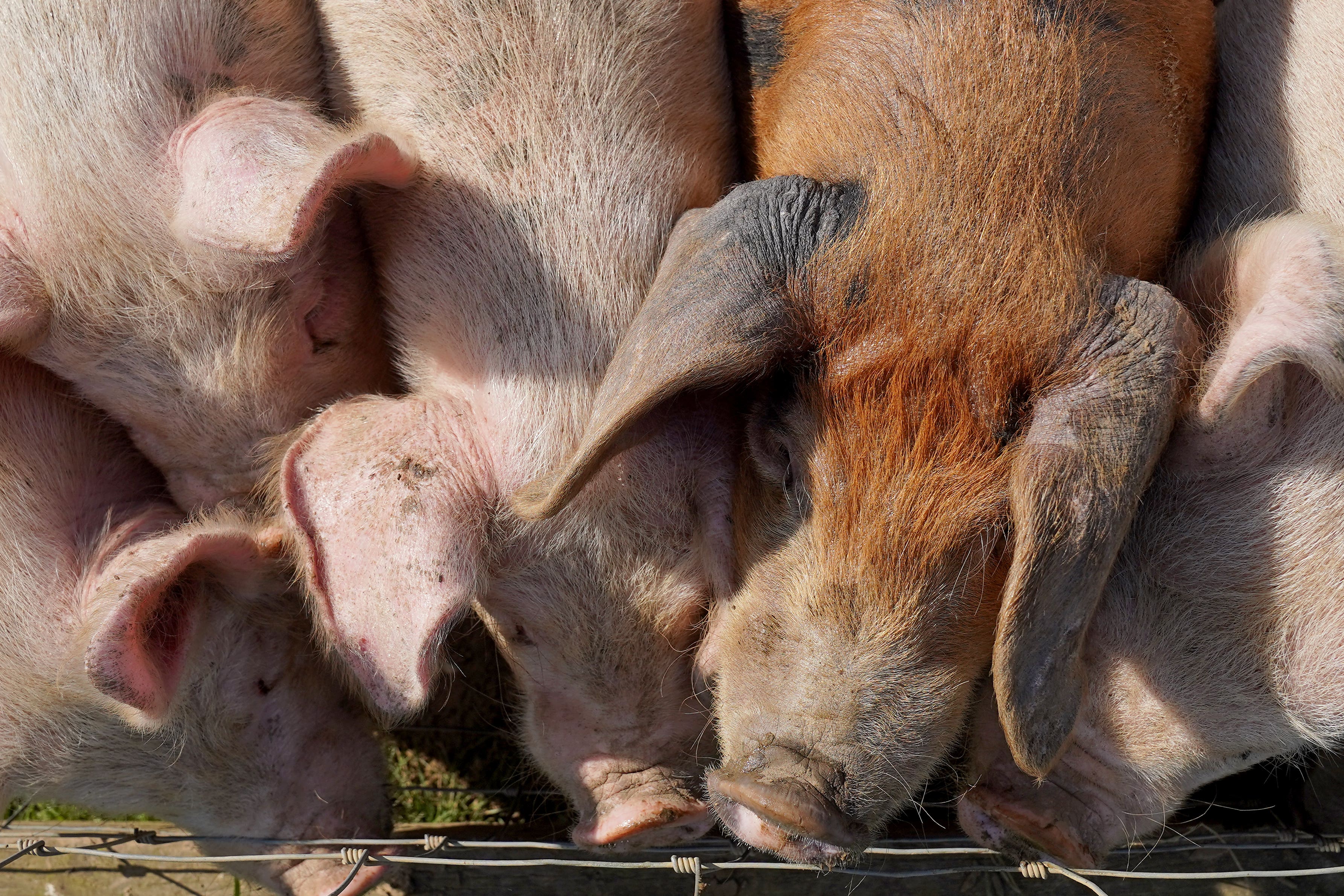Human kidneys grown inside pig embryos implanted in surrogate sows
The kidneys in the part-human, part-pig embryos were allowed to develop for 28 days.

Your support helps us to tell the story
From reproductive rights to climate change to Big Tech, The Independent is on the ground when the story is developing. Whether it's investigating the financials of Elon Musk's pro-Trump PAC or producing our latest documentary, 'The A Word', which shines a light on the American women fighting for reproductive rights, we know how important it is to parse out the facts from the messaging.
At such a critical moment in US history, we need reporters on the ground. Your donation allows us to keep sending journalists to speak to both sides of the story.
The Independent is trusted by Americans across the entire political spectrum. And unlike many other quality news outlets, we choose not to lock Americans out of our reporting and analysis with paywalls. We believe quality journalism should be available to everyone, paid for by those who can afford it.
Your support makes all the difference.Scientists have, for the first time, grown human kidneys inside pig embryos that were implanted in surrogate sows.
The kidneys in the part-human, part-pig embryos were allowed to develop for 28 days – spanning the first trimester of a pig pregnancy.
The researchers found that the kidneys had normal structure and tubule formation and were in the second stage of development when the embryos were extracted.
The team said that although similar methods have been used to generate human tissues such as blood or skeletal muscle, previous attempts to grow human organs in pigs have not succeeded.
Liangxue Lai, of the Guangzhou Institutes of Biomedicine and Health at the Chinese Academy of Sciences, said: “Our approach improves the integration of human cells into recipient tissues and allows us to grow human organs in pigs.”
Integrating human stem cells into pig embryos has been a challenge because pig cells and human cells end up competing with each other.
Our approach improves the integration of human cells into recipient tissues and allows us to grow human organs in pigs
To solve this problem, the researchers used gene editing technology to remove two genes from pig embryos.
This creates what is known as a genetic “niche” or “void”, enabling the resulting embryo to grow human kidneys.
The researchers then engineered human stem cells – which have the potential to become any type of tissue in the body – to make them more amenable to developing in the pig embryo.
The part-human, part-pig embryos, known as chimeras, were grown in conditions in the lab that catered to both pig and human cells and their different needs, before being implanted in surrogate sows.
In total, the researchers transferred 1,820 embryos to 13 surrogate mothers.
All pig mothers had their pregnancy terminated after 28 days because ethical guidelines advise against letting chimeras develop completely.
The embryos were then extracted to assess whether they had successfully produced human kidneys.
The team found that at 25–28 days, the kidneys were in the second stage of development and were structurally normal for their stage.
They also had up to 60% human cells and had formed tubules and buds of cells that would eventually become ureters, connecting the kidney to the bladder.
Analysis also showed human cells were mostly localised to the kidneys, while the rest of the embryo was made up of pig cells.
Zhen Dai, also of Guangzhou Institutes of Biomedicine and Health, said: “We found that if you create a niche in the pig embryo, then the human cells naturally go into these spaces.”
As part of the next steps, the team wants to allow the kidneys to develop for a longer duration.
They are also working to generate other human organs in pigs, including the heart and pancreas.
Ultimately, their aim is to use the technology for human organ transplantation, but the researchers said more work needs to be done.
Miguel A Esteban, also of Guangzhou Institutes of Biomedicine and Health, said: “We would probably need to engineer the pigs in a much more complex way and that also brings some additional challenges.
“Before we get to that late state of making organs that can be on the shelf for clinical practice, this method provides a window for studying human development.
“You can trace the human cells you’re injecting and manipulate them so that you can study diseases and how cell lineages are formed.”
The research is published in the journal Cell Stem Cell.
Commenting on the research, Dusko Ilic, professor of stem cell sciences at King’s College London, said: “The paper describes pioneering steps in a new approach to organ bioengineering using pigs as incubators for growing and cultivating human organs.
“As the authors admitted, there are plenty of challenges.
“Will this approach prove to be the ultimate solution? Only time holds the answer.
“Nevertheless, this captivating strategy warrants further exploration.”
Rafael Matesanz, creator and founder of Spain’s National Transplant Organisation, added: “The next steps will be to allow embryos to grow longer and to start doing the same with other organs and tissues, although the kidney is undoubtedly the most sought-after organ for transplantation.
“The authors themselves acknowledge that the clinical use of this technology is years away but it is a major achievement on the road to unlimited organ production for transplantation.”